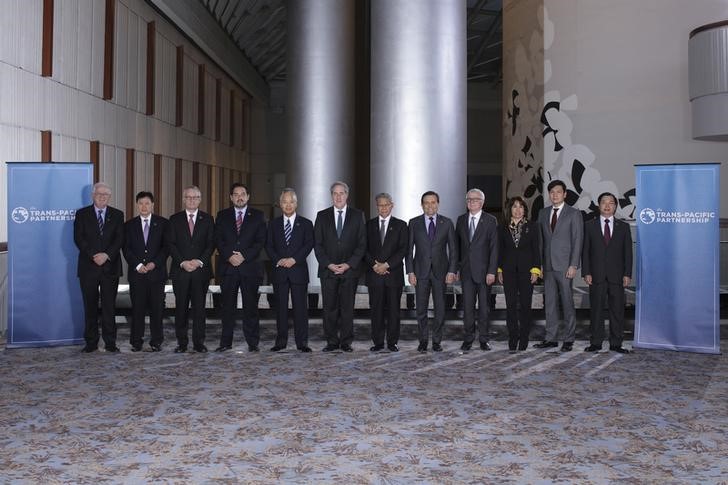BEIJING (Reuters) - China is "assessing the effects" of the U.S.-backed Trans-Pacific Partnership (TPP) regional trade accord, the Ministry of Commerce said on Friday.
China is not among the 12 Pacific-Rim countries which last month agreed to the trade pact, the most ambitious in a generation. The accord includes Australia and Japan among economies worth a combined $28 trillion.
The full text of the deal was released on Thursday.
"China has noted that the contents of the agreement have been released, and is ... carrying out a full, systematic assessment of its effects," the Commerce Ministry said in a brief statement.
It did not elaborate.
China's trade minister said last month the country did not feel targeted by the TPP, but would evaluate the likely impact comprehensively.
Beijing has been pushing its own trade pact, the Regional Comprehensive Economic Partnership (RCEP), a proposed 16-nation free-trade area that would be the world's biggest such bloc, encompassing 3.4 billion people.
RCEP, which would comprise the 10-nation Association of South East Asian Nations plus China, India, Japan, South Korea, Australia and New Zealand, is a Beijing-backed trade framework that has gained prominence as an alternative to U.S. plans.

The TPP aims to cut trade barriers and set common standards from Vietnam to Canada. But it has also been pitched as a way to counter China's rising economic and political influence.